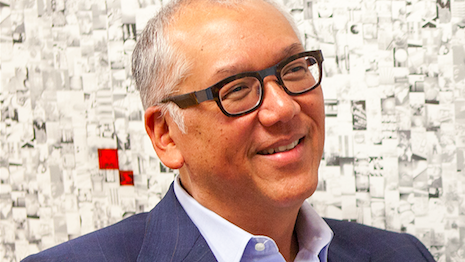- About
- Subscribe Now
- New York,
May 8, 2017

 Tonny Wong is vice president of consulting services at Hacker Group Consulting Partners
Tonny Wong is vice president of consulting services at Hacker Group Consulting Partners
By Tonny Wong
Imagine Oprah ruling the sharing economy: “you share a car, you share a car, you share a car, and you share a car!” The idea of it 15 years ago seems absurd.
While the idea of a sharing economy is not new – humans embraced it for thousands of years – nearly every industry has experienced disruption thanks to "the rise of the shared economy." Companies feel threatened by "Uberfication" of cars and have a long way to go building loyalty around sharing.
As numbers of people stood on the side of a road lifting their arm raising one finger – not that one, but the thumb – and declined mom’s advice “Don’t pick up hitchhikers“, we see a sharp increase in interactions with strangers.
The problem
People take advantage of Airbnb, raising its valuation to $30 billion. Sharing cars with strangers raised Uber’s value to $66 billion versus Delta Air Line’s valuation of a mere $37 billion.
The drivers in this evolution are summed up in these trends:
Behavioral changes through social media
Immediacy of information through technology
Desire for new experiences without available credit
If companies cannot adapt, they will be left behind answering to angry investors.
You could be Blockbuster or Netflix. At one time, we all would have loved to be Blockbuster. Unfortunately, the video rental chain did not think technology would affect its brand.
That leads to the biggest challenge we face in this disruptive world: How do we create and maintain brand loyalty when today’s consumers seek ease, speed and cost effectiveness?
This brings us to the automotive industry.
Why has the shared economy affected this industry so much?
Why have consumers embraced sharing?
Technology has not just affected the industry, but is changing the face of it and car manufacturers and public transportation should be worried, very worried.
Many are reacting in a familiar way: Sell more vehicles to fleets.
BMW’s ReachNow, Daimler’s Car2Go and Maven from GM make their brands available to consumers through new channels. But loyalty is to the channel, not the brand – a sad reality of today’s technological world.
The reality
Previous age groups were pretty much guaranteed to buy cars and the industry had high expectations for the largest generation to purchase at the same age as previous generations. They did not.
Is it because millennials do not want cars or houses? That is a myth.
Millennials moved back into their parent’s homes after college. College debt and credit-strained finance has shifted purchases to the future, creating an older generation of purchasers.
With many millennials living in urban areas – which brings traffic, little parking and long commutes – consumers are happy to adopt ride sharing, ride hailing and even car sharing as an alternative to ownership.
The approach
Today’s most valuable loyalty “currency” cannot commoditized: time and experience.
Texting, reading and experiencing the ride are important factors that the automobile industry should focus on to create brand loyalty for a generation responding to disrupter messages.
Original equipment manufacturers (OEMs) today continue to see themselves as manufacturers of transportation, essentially a vehicle.
Some see themselves as providers of mobility that transcends vehicles.
To future-proof against disrupters, OEMs must position themselves as providers of experiential journeys.
ONCE UPON a time, we dug through people’s trash to find out all the information we needed to know about a person.
Today, you gain insights by going through their phone. Let them plug their phone into a shared car, a ride share or a ride hail. Keep them connected to different types of music, pay for their ride, contribute to the ride and build on loyalty through experience.
Insights gleaned as we share our lives will be invaluable to become a disrupter.
Sharing may be like New Coke – lots of hype that does not deliver.
Not everyone wants to share cars. But if they do, brands must go beyond the products to drive brand loyalty and be drivers of disruption.
Tonny Wong is vice president of consulting services at Hacker Group Consulting Partners, Seattle. Reach him at tonny.wong@hal2l.com.
Share your thoughts. Click here